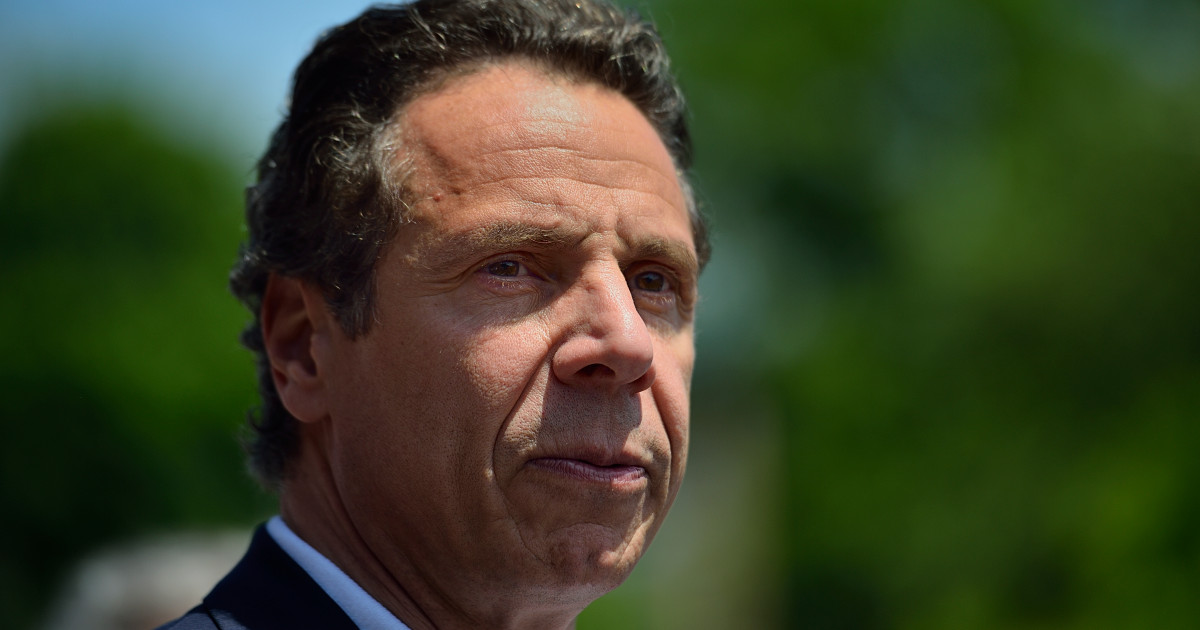

New York Gov. Andrew Cuomo framed his administration’s push to legalize cannabis for adult-use in the most progressive terms yet on Monday, marking a political metamorphosis on the issue and heartening New York’s cannabis advocacy community.
In a speech in New York City, Cuomo promised to work with the legislature to pass the legalization of adult-use cannabis within his administration’s first one hundred days. This move, according to a report by New York City Comptroller Scott Stringer earlier this year, could create a $3.1 billion cannabis market in the state, bigger than current markets in Colorado and Washington combined.
“We will advance our justice agenda, and particularly address the forms of injustice that for too long have unfairly targeted the African American and minority communities. FDR said: ‘No democracy can long survive which does not accept as fundamental to its very existence the recognition of the rights of its minorities,’” Cuomo said at the NYC Bar Association in midtown, Manhattan in Monday.
“And the fact is, we have had two criminal justice systems: one for the wealthy and the well-off, and one for everyone else. And that’s going to end. We must also end the needless unjust criminal convictions and the debilitating criminal stigma. And let’s legalize the adult use of recreational marijuana once and for all,” he added.
I just laid out my 2019 agenda for the first 100 days of the next legislative session. Now is the time for New York to stand up and deliver on the promise of full, true justice for all. There’s no time to wait. #2019JusticeAgenda. pic.twitter.com/A9Ewdyp2o8
— Andrew Cuomo (@NYGovCuomo) December 17, 2018
While the governor’s pledge was broad, Cuomo didn’t provide any details about how the mechanics of his cannabis legalization vision would work. Still, Cuomo’s speech included language that social justice advocates have long looked for from New York’s leaders: a commitment to repairing communities that have been harmed by America’s Drug Wars and allowing people of color the ability to open businesses in the new cannabis marketplace.
Cuomo, who is often talked about among a group of Democrats who could campaign for president in 2020, called marijuana a “gateway drug” last year. “I am unconvinced on recreational marijuana,” he said then, according to Politico. (Cuomo has denied talk that he would run for president in 2020.)
A progressive opponent in the Democratic primary, Cynthia Nixon, pushed Gov. Cuomo and his administration down a different path when it comes to cannabis after Nixon made legalization a key campaign plank. Just before the candidates’ only debate, Lauren Hitt, a spokesperson for Nixon, told Cannabis Wire, “Cuomo’s shift has occurred entirely due to pressure by Cynthia.” (Cannabis Wire also found that, during his campaign, Cuomo accepted just under $100,000 from cannabis industry players.)
Another factor was likely the movement toward legalization and legal sales in surrounding states, including New Jersey and Massachusetts, and in Canada. Also, this summer, a Department of Health cannabis legalization report commissioned by Cuomo found that the benefits outweigh the risks, and the governor announced in September the formation of a workgroup that would draft a legalization bill.
New York Assembly Majority Leader Crystal D. Peoples-Stokes (D-141) told Cannabis Wire, “We have a duty to ensure that legalization is achieved in conjunction with significant criminal and social justice reforms, including the automatic sealing of certain past marijuana convictions.”
Peoples-Stokes added, “The economic opportunities associated with a regulated adult use market are far and wide, and as outlined in legislation I sponsor with Senator Liz Krueger, the Marijuana Regulation and Taxation Act, my priority is to ensure New Yorkers most impacted by the history of over-policing are given priority opportunities to build wealth to better their families and communities.”
Melissa Moore, the Deputy State Director for New York at the advocacy group Drug Policy Alliance, said advocates were pleased that legalization is a top priority for the administration. She also said that pressure from a wide coalition of New York advocacy groups had pushed policymakers, including Cuomo, on cannabis and social justice issues over the last decade.
“I think the momentum has clearly been building,” she told Cannabis Wire in an interview. “New York can’t just legalize and pat ourselves on the back and say ‘we did it.’ We must address the horrific harm.”
Citizen Action of New York was among other progressive groups that also praised Cuomo’s urgency on cannabis legalization.
Meanwhile, leading national anti-legalization organization Smart Approaches to Marijuana geared up, as they have been across the country, to fight the momentum with a statement: “SAM New York will continue actively working with our partners throughout the state and with lawmakers in Albany to oppose the agenda of Big Marijuana. … In New Jersey, Governor Phil Murphy promised to legalize marijuana in his first 100 days. We have held his agenda up for close to a year, we will do the same in the Empire State.”
Moore said that she expects Cuomo’s administration to attach a legalization measure in budget legislation that he is expected to deliver to New York lawmakers in January. She also noted a recent report from New York City Comptroller Scott M. Stringer that lays out a blueprint for how cannabis revenue and resources should go toward communities most affected by cannabis enforcement.
Moore said that while she and others don’t yet know the details, advocacy groups hope Cuomo’s measure mirrors the “Marihuana Regulation and Taxation Act,” sponsored by Peoples-Stokes.
“There are always political realities and the governor is seeing a lot of movement,” Moore said. “This is a bit of an inescapable moment.”